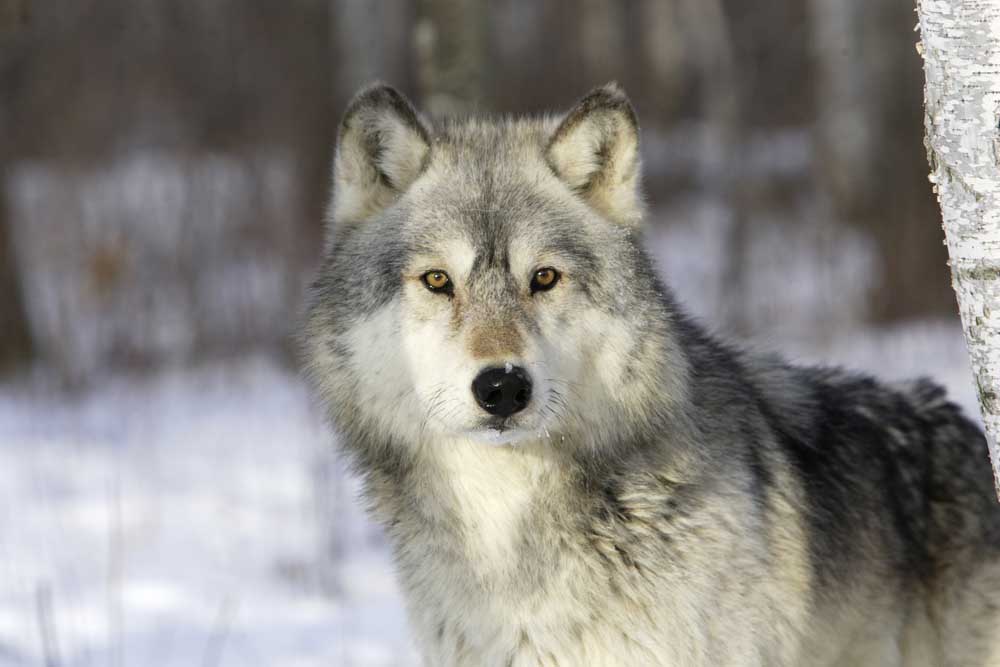Environmentalists lose Diamond M grazing case
Published 10:46 am Tuesday, June 20, 2023

- A gray wolf.
The 9th U.S. Circuit Court of Appeals on June 14 rejected a bid by three environmental organizations to bar the Diamond M ranch from grazing cattle in the Colville National Forest in northeast Washington.
The three-judge panel unanimously ruled the three groups lacked standing to sue the U.S. Forest Service over its decisions to allow the grazing.
Writing for the court, Judge Eric Miller said the groups didn’t object to grazing, but complained that grazing led to wolf-livestock conflicts that led the Washington Department of Fish and Wildlife to shoot wolves.
The Forest Service does not kill wolves or have oversight over Fish and Wildlife, according to Miller.
“Because wolves in Eastern Washington are not federally protected, the service has no authority to require the department to do anything before killing a wolf,” Miller wrote.
WildEarth Guardians, the Western Watershed Project and Kettle Range Conservation Group filed the lawsuit. The ruling affirmed a decision by U.S. District Judge Rossana Malouf Peterson in Eastern Washington.
The Diamond M ranch, which has been grazing in the Colville forest since shortly after World War II, intervened in the lawsuit. The Stevens County-based ranch had permits to graze 736 cow-calf permits when the lawsuit was filed in 2020.
“I thank the 9th Circuit for understanding the issue,” said Len McIrvin, the senior member of the family that owns the ranch. “We knew it was the way it should go.”
The lawsuit alleged the Forest Service violated the National Environmental Policy Act and National Forest Management Act by failing to consider changing grazing rules to prevent wolf-livestock conflicts.
The lawsuit challenged a forest plan adopted in 2019 and grazing permits issued to Diamond M in 2020.
The key issue, according to Miller, was whether the Forest Service’s actions were causing the harm — the lethal removal of wolves.
Fish and Wildlife “inflicts the injury of its own accord,” Miller wrote, so the lethal removal of wolves can’t be traced to the Forest Service’s grazing decisions. Ordering the Forest Service to “make different grazing decisions” wouldn’t redress the harm alleged by the environmental groups, he ruled. Kettle Range director Tim Coleman said cattle and wolves are bound to have conflicts in the Colville forest. Fish and Wildlife, which reacts to the conflicts, has no control over where the cattle go, he said.
“It’s actually quite a quandary if you think about it. One agency manages habitat and one manages wolves. And how do you separate the two?” he said.
Miller’s opinion was joined by Circuit Judge John Owens and Central California U.S. District Judge Dean Pregerson, who served on the Circuit Court for this case.
The Washington Cattlemen’s Association submitted an amicus brief, warning that holding the Forest Service responsible for the actions of state wildlife managers would have far-reaching consequences for ranchers.
”The Washington Cattlemen’s Association is very happy with the decision. We agree with the court and their wisdom,” said Mark Streuli, a lobbyist for the association.







